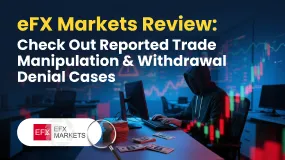Abstract:The forex market, renowned for its ever-changing nature and attractive profit potential, holds immense allure for traders across the globe. Nevertheless, achieving success in navigating this global exchange market brings forth various challenges, predominantly the element of risk. In this extensive guide, we shall thoroughly explore Forex Risk Management, providing you with essential tools and knowledge to ensure prosperous trading endeavors.

The forex market, renowned for its ever-changing nature and attractive profit potential, holds immense allure for traders across the globe. Nevertheless, achieving success in navigating this global exchange market brings forth various challenges, predominantly the element of risk. In this extensive guide, we shall thoroughly explore Forex Risk Management, providing you with essential tools and knowledge to ensure prosperous trading endeavors.
Introduction to Forex Risk Management
Understanding Forex Risk Factors
The first step in effective risk management is understanding the various risk factors inherent in forex trading. Market risk, interest rate risk, exchange rate risk, and credit risk are the primary culprits. Market risk involves the possibility of financial loss due to adverse market movements, while interest rate risk pertains to the impact of interest rate fluctuations on currency values. Exchange rate risk is the potential for losses arising from currency value changes, and credit risk involves the possibility of default by a trading partner.
Tools for Forex Risk Identification
To navigate the volatile forex market successfully, traders must employ tools for risk identification. Technical analysis, fundamental analysis, and economic indicators are vital in this regard. Technical analysis involves studying historical price charts and patterns, while fundamental analysis delves into economic factors influencing currency values. Economic indicators, such as GDP growth and inflation rates, offer insights into a countrys economic health.
Setting Risk Tolerance Levels
Determining your risk tolerance is a crucial aspect of effective forex risk management. Your risk tolerance should align with your financial goals and trading strategies. Its essential to strike a balance between the potential for profits and the level of risk you are comfortable taking on. This involves assessing your financial situation, investment goals, and time horizon.
Stop-Loss and Take-Profit Strategies
Diversification in Forex Trading
Diversification is a key strategy for managing risk in forex trading. By spreading investments across different currency pairs and assets, traders can mitigate the impact of adverse movements in any single market. However, effective diversification requires careful consideration of correlations between different assets to avoid unintended risks.
Risk Mitigation Strategies
Beyond diversification, traders can employ specific risk mitigation strategies, such as hedging. Hedging involves opening positions to offset potential losses in other positions. While it adds a layer of complexity to trading, it can be a powerful tool in risk management.
Psychological Aspects of Forex Risk Management
The psychological aspects of trading play a significant role in risk management. Emotions such as fear and greed can cloud judgment and lead to poor decision-making. Traders must develop emotional discipline to stick to their risk management plans and avoid impulsive actions.
Monitoring and Adjusting Risk Management Strategies
Successful risk management is not a one-time task but an ongoing process. Traders should regularly monitor their risk management strategies and adjust them as needed. This adaptability is crucial in responding to changing market conditions and ensuring the continued effectiveness of risk management plans.
Case Studies: Successful Risk Management Stories
Learning from real-world examples can provide valuable insights into effective risk management. Explore case studies of traders who navigated challenging market conditions by implementing sound risk management practices. These stories serve as lessons and inspiration for developing your risk management skills.
Common Mistakes in Forex Risk Management
The Role of Technology in Forex Risk Management
Technology plays a pivotal role in modern forex trading and risk management. Trading platforms and software offer advanced tools for analysis and execution. Automation, through the use of algorithms and trading bots, has become increasingly popular for executing predefined risk management strategies.
Continuous Learning and Improvement
The forex market is dynamic and ever-evolving, making continuous learning essential. Stay informed about market trends, economic developments, and changes in regulatory landscapes. Resources such as online courses, market analysis reports, and forums can contribute to your ongoing education in forex risk management.
Regulatory Considerations in Forex Trading
Traders should be aware of and comply with regulatory requirements in the jurisdictions where they operate. Choosing to trade with regulated brokers ensures a level of transparency and accountability, enhancing overall risk management. With the help of wikifx, traders can chose from thousands of regulated brokers to trade with.
To summarize, implementing efficient forex risk management is a complex procedure that entails comprehending different risk factors, utilizing identification tools, establishing tolerance levels, and executing mitigation strategies. Accomplished traders integrate financial expertise with emotional control and consistently adjust their approaches in response to shifting market dynamics.










